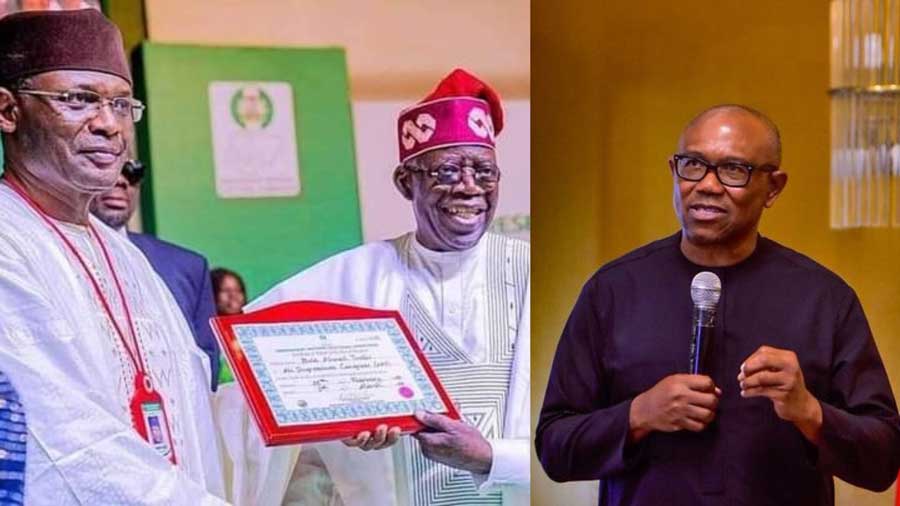Recall that on March 20, Obi and the Labour party filed a petition against the 2023 presidential election, listing 3 grounds for the nullification of Tinubu’s victory.
On ground one of their petition, Obi’s legal team alleged that Tinubu was not qualified to contest the election because contrary to the provisions of the Electoral Act 2022, he was allegedly fined the sum of $460,000 in the United States over an offence bordering on narcotics trafficking.
The team maintained in ground two that the election cannot stand because INEC made the deployment of the Bimodal Voter Accreditation System machine mandatory for the accreditation of voters and immediate uploading of results but failed to do so on election day, contrary to laws and regulations.
But INEC filed its objection against Obi’s submission, insisting that collation officers could rely on the commission’s copy of the results from the polling unit in the event that no results have been electronically transmitted from a polling unit.
In response, Obi’s legal team entered a reply to INEC stating that rather than the electoral umpire to maintain neutrality in the case, it is contending against its position on electronic transmission, adding that a subsisting judgement in Suit NO: FHC/ABJ/CS/334/2023 had determined that the use of BVAS for the accreditation and electronic transmission of the results of the election is “mandatory”.
But INEC in its motion on notice filed after its objection, urged the court to hear its instant objection outside the pre-hearing session of the election petition of Obi.
Among other things, the electoral umpire urged the court to invoke the doctrine of “issue estoppel” which bars any party from re-litigating an issue that has been concluded in earlier court proceedings.
“An order of the honourable court striking out Ground 2, paragraphs 33-79 as well as reliefs Nos. 5(i) and (ii) of the petition as it pertains to electronic transmission of the election results for being caught up by issues estoppel.
“An order of this honourable court striking out paragraphs 20(i), 21, 22, 23, 24, 25, 26 and 27 of the petition bordering on the nomination of the 2nd (Tinubu) and 3rd(Shettima) respondent for lack of jurisdiction to entertain same,” INEC prayed.
 DailyrecordNg …Nigeria's hottest news blog
DailyrecordNg …Nigeria's hottest news blog









